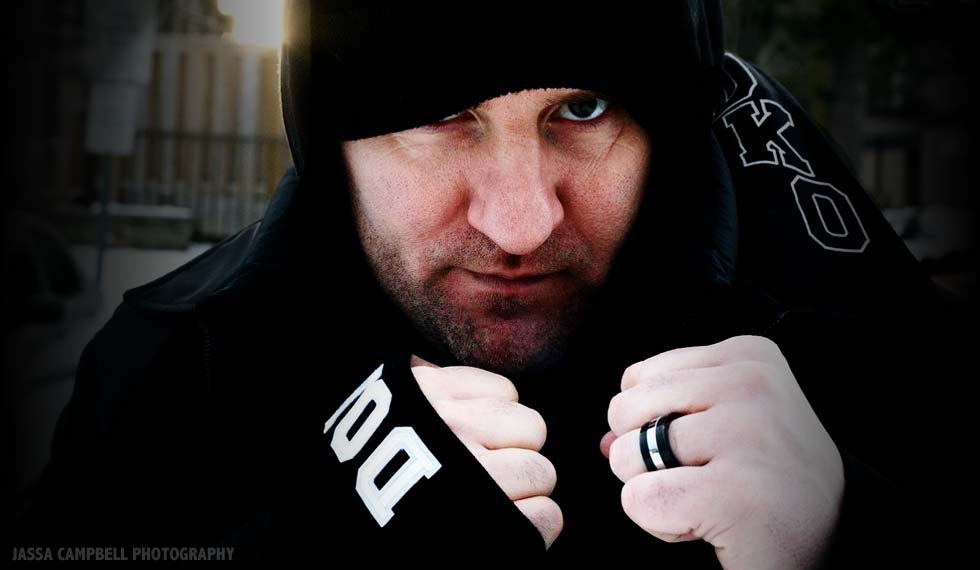At first, Steve Salem suspected it was a snow job.
How could some guy from Toronto – and a white guy at that – authentically reproduce the rapid-fire patois of Jamaican dancehall music, let alone sell a ton of records?
That question ran through Salem’s mind when producer MC Shan brought Snow to a New York studio for an audition. With DJ Marvin Prince laying down a beat track, Snow grabbed the microphone and chilled the room with Uhh in You.
Salem, co-owner of Motor Jam Records, went from skeptic to believer in three minutes and 46 seconds.
That’s the length of time listed on the CD jacket for Uhh in You, one of 14 tracks on 12 Inches of Snow, Snow’s debut disc released last December. Twelve Inches has sold more than 2 million copies worldwide, based mainly on the strength of one single, Informer.
“Sure I was skeptical,” Salem said this week from his New York office. “Well, you know what it’s like. There’s always somebody trying to get a record deal.”
Snow – whose real name is Darrin O’Brien – is an overnight success. Informer is a staple in dance clubs worldwide, particularly in Europe and Japan where he recently toured.
There may be a heat wave on but Snow will be drifting into Montreal July 14 at the Metropolis.
The 23-year-old performer’s success is based on the fact that he tosses his Jamaican “toasting” lyrics across a bass-heavy hip-hop beat.
It was the helter-skelter vocal style of dancehall, the stripped- down and more guttural version of reggae championed by Jamaican artists Shabba Ranks and Super Cat, that hooked Snow while growing up in a predominantly Jamaican neighborhood in north Toronto.
“Ragga” clubs in Britain, where a new fashion cult has naturally emerged in the process, cannot spin Snow’s music of-ten enough to satisfy patrons. British pop radio got behind dancehall in April and pushed Shaggy’s Carolina, Snow’s Informer and Mr. Loverman by Shabba Ranks into the top three chart positions.
Still, the U.S. is a much tougher musical nut to crack. There, hip- hop is still the standard for black radio. Motor Jam’s Salem says the timing is just about right for dancehall, or at least he’s banking that the timing is just about right.
“The funny thing is, the black kids are really only starting to look at reggae. You go to any reggae concert until recently, like Burning Spear, and it was just white college kids. Finally, the black community is getting into it.”
Perhaps the cross-over point is the fact that the sexual and sometimes violent lyrical content of some of the new dance-hall artists – such as Buju Banton – is shared by the New York rappers who specialize in the style called new jack swing.
And, as Salem proudly points out, Snow’s initial success with Informer on black radio came before the news got out that he was indeed white. “Snow came along with the right record for mass appeal.”
MASS APPEAL
Mass appeal was what propelled white rapper Vanilla Ice to the top of the pop charts in 1990. With some justice, black rappers crucified him for being artificial. The rap group 3rd Bass dedicated a not-so-flattering tune to Vanilla Ice. The title: Pop Goes the Weasel.
Some critics say Snow’s popularity will melt just as Vanilla Ice’s did.
“People compare because I’m white,” Snow said in a recent interview with the Los Angeles Daily News. “But how can you compare me to him? Can you honestly listen to my album and say, ‘That sounds just like Vanilla Ice?’ I don’t dress like him, rap like him, or do anything like him.”
It was Vanilla Ice’s manufactured hype about non-existent run-ins with police that finally did him in. In Snow’s case, brushes with the law were all too real.
In 1989, Snow got into a brawl in his rough north Toronto neighborhood. He wound up in a detention centre for eight months, on charges of attempted murder, which were eventually dropped. And in 1992, he served another eight months for assault causing bodily harm, after beating another man with a crowbar in an argument outside a bar.
GANGLAND UPBRINGING
“I never had nothing to do except drink and fight,” Snow said of his gangland upbringing, in a recent interview with Maclean’s.
Though released from prison in January, just as 12 Inches of Snow (recorded before he went to jail) was starting to climb the charts, Snow remains on probation. He insists he’s through with bad decisions.
But the legal situation was enough to cause Salem to raise more questions about whether to sign this white Canadian kid.
“We had a lot of discussions about it, whether (his imprisonment) would help or hurt his career,” Salem recalls. “Whether he’s turning things around is his business. If he doesn’t turn around, that’s his business too.
“That’s why he hasn’t hidden anything. That’s what parents would want, I think. OK, he’s been in jail, but don’t be a liar.”


